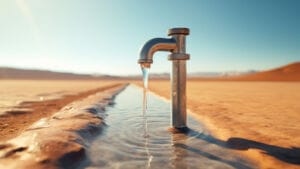When my father’s grandparents immigrated to America, they had one objective: to give their children, and some day their grandchildren, a better life. They worked hard and sacrificed to instill the desire to make thing better for the next generation, my grandparents.
Maybe you can remember the sacrifices you saw growing up, how past generations saved money and withheld pleasure from themselves in order to make sure the next generations strived.
That generation is long gone and has been replaced with an American culture that is more focused on the here and now. We don’t think as much about the future, particularly one that doesn’t include us. Today, we look out more for our own best interest. Yes, of course, we want our children to have a better life than us, that is, as long as our lives are exceptionally good.
In 1928, Herbert Hoover was elected president based on the promise of prosperity. “A chicken in every pot and a car in every garage” boasted the campaign slogan, and people lined up at voting booths. Think about that for a moment – to our ancestors the thought of owning a car and having a good meal seemed like a dream! Times have changed.
Our society is in debt, and I am not just talking about our financial woes. We are borrowing resources from future generations: their trees, water, air, flora, fauna. And we have no plan or intention to pay it back, leaving the bill and a big mess to our children and their children.
So the question is: How do we deal with environmental issues that will exist beyond our allotted time here on earth, affecting generations that may never even know our names but will remember our water bottles?
Issues like global warming, pollution, loss of biodiversity and an economy based on carbon will have a much larger effect on our ancestors than it ever will on us, and the solutions for those issues will take generations to fix. Weaning ourselves from carbon is not as easy as electric cars and solar panels, carbon-based fuels are used for much more than powering our cars and heating and cooling our homes. Plastic, makeup, diapers, medical equipment, roads, computers, nearly everything you have in your home in some way or another is connected to these products. Our demand continues to grow and the technology to replace oil, coal and natural gas will take time to evolve and take even longer to meet our growing needs.
So what can we do? First, we need to start thinking beyond our own lifetime and the impact that our actions today will have on future generations and take personal responsibility for those actions. It is a seedy picture of those 25 generations from now weeding through mounds of our plastic, living amongst a significantly smaller circle of species, and enduring famine and disease as a result of decisions made by us today.
Second, we need to demand accountability of our government and the companies we support, asking them to create positions and departments that represent the rights of future generations. In addition, our justice department needs to aggressively defend the rights of those inheriting this planet.
Finally, we need to reconnect to our instinct of sacrificing to create a better world for our children.
To our children, our impact will not be taught from history books but seen in the evidence we left on the planet we lived.




